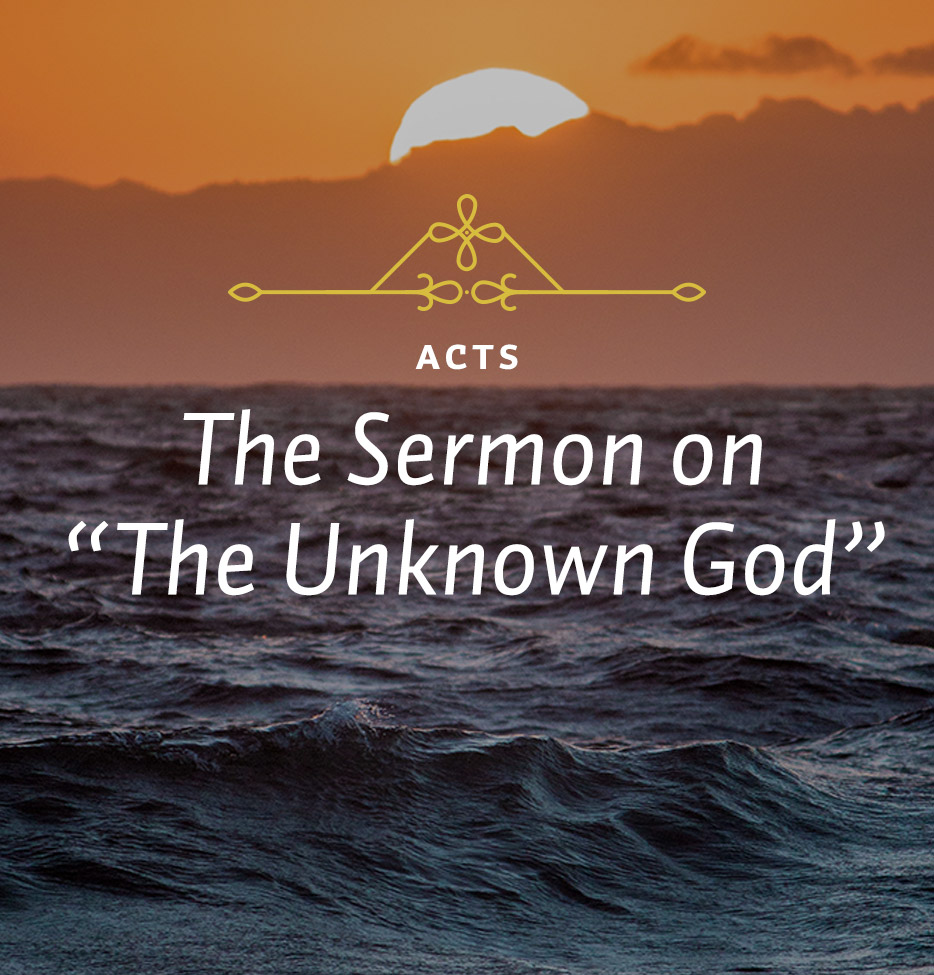Paul’s late missionary efforts centered on the cities of his world. At the beginning, when he first set out with Barnabas, he passed through Cyprus from one end to the other, and we are told almost nothing about any specific ministry in towns. But after he went to Asia Minor, which we call Turkey, he worked in some cities there, small ones at first, then larger cities. At last, when he came to Europe, his ministry was focused almost entirely on the great cities: Philippi, Thessalonica, Berea, and now, in this chapter on Athens, the greatest city of them all.
It was hundreds of years after Athens’ Golden Age that Paul visited the city and preached the sermon recorded in Acts 17, but the city was still a strikingly beautiful city as well as being the intellectual capital of the ancient world.
What do you suppose the reactions of Paul were as he came to Athens on this second missionary journey? We remember that he had been trained in one of the great university centers himself, Tarsus, where he had been born and grew up. He reflects his privileged education in this sermon by quoting from two of the Greek poets, Aratus and Cleanthes, both of whom seem to have said, “We are his offspring” (v. 28). The fact that Paul seemed so at home in the intellectual setting of Athens reveals something of his background. He came from a distinguished university. He was visiting a distinguished university. He would have great respect for it. It would have been, to use a modern comparison, as if a graduate of Harvard or Yale were to visit Cambridge or Oxford.
We cannot miss seeing that Paul was also greatly disturbed as he began to talk with the prominent Athenian philosophers. Luke tells us that they were Epicureans and Stoics. The Epicureans and Stoics were two great schools of philosophy in Paul’s day.
1. The Epicureans. Epicureans derived their worldview from Epicurus who had lived in the second and third centuries B.C. According to Epicurus, the chief goal in life is to attain the maximum amount of pleasure and the minimum amount of pain. We use the word “Epicurean” to refer to a person who is a mere hedonist, but the Epicureans were not quite hedonists in our sense. Hedonists abandon themselves to pleasure. The Epicureans did not do that exactly. They sought a balance between pain and pleasure. Nevertheless, they were great materialists. They said in effect, “This life is all there is; you only go around once. So if it feels good, do it. If it doesn’t feel good, stay away from it. Avoid what hurts.” They tried to create a lifestyle that would achieve the maximum good based upon their philosophy.
Do you know anyone like that today? You know hundreds of such people. We live in an age dominated by a pleasure-first, do-what-pleases-me, avoid-the-pain philosophy. “Above all,” say our contemporaries, “do not take any responsibility that might prove difficult. Enjoy yourself, because this life is all there is.”
Can you imagine what Paul, steeped in the Old Testament and with his sound knowledge of the true God, must have thought of that philosophy? We read that when he saw the Athenian idols he was bothered by them, but he must have been bothered by their philosophy, too. Are we similarly bothered by the faulty philosophies around us? Does it bother us that people are living for the present moment only and do not seem to have the faintest idea that they are eternal beings and must one day face God?






